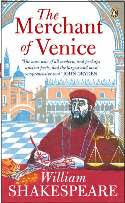Israeli Law and Society Association, Annual Meeting
Global, Regional, and Local: Law, Politics, and Society in Comparative Perspectives
International Conference, The Hebrew University of Jerusalem,
December 24-26, 2008
CALL FOR PAPERS
The Program Committee of the International Annual Conference of the Israeli Law and Society Association (ILSA) invites scholars conducting research on any aspect of Law and Society to submit proposals for individual papers and organized panels. Panels and papers devoted to the main theme of the conference - "Global, Regional, and Local: Law, Politics, and Society in Comparative Perspectives" - are especially invited. Other topics relating to the field of law and society in its broader meaning are also welcome.
Proposals should be accompanied by an abstract of 300 words as Word email attachment (include title of paper, name and email address of author/s with the text of the abstract). Organizers of panels should collect abstracts from the panel participants and submit them together with a description of the panel. Graduate students should submit a letter from their thesis supervisor in support of the proposal, together with the abstract.
Proposals should be submitted by email to the Program Committee at:
gbarzil@u.washington.eduThis e-mail address is being protected from spambots, you need JavaScript enabled to view it by August 15th, 2008.
Selected papers will be integrated into a special volume of "Hamishpat" [translated as THE LAW] (published by the Law School, College of Management) after a process of peer-review evaluations. Call for articles will be sent by the journal in due time.
Program Committee
Chair:
Gad Barzilai--Jackson School, LSJ, Political Science, Law, University of Washington.
e-mail: gbarzil@u.washington.eduThis e-mail address is being protected
from spambots, you need JavaScript enabled to view it web site:
http://faculty.washington.edu/gbarzil/
Members:
Michal Alberstein-- Law, Bar Ilan University
e-mail: malberst@mail.biu.ac.ilThis e-mail address is being protected from spambots, you need JavaScript enabled to view it web site: http://www.law.biu.ac.il/rashi.php?id=74
Daphne Barak-Erez-- Law, Tel Aviv University
e-mail: barakerz@post.tau.ac.ilThis e-mail address is being protected from spambots, you need JavaScript enabled to view it web site: http://www.law.tau.ac.il/Heb/?CategoryID=357&ArticleID=351
Guy Davidov--Law, Hebrew University, Jerusalem.
e-mail: guy.davidov@huji.ac.ilThis e-mail address is being protected from spambots, you need JavaScript enabled to view it
web site: http://law.huji.ac.il/segel.asp?staff_id=95&cat=409&in=409
Malcolm Feeley--Center for the Study of Law and Society, UC Berkeley.
e-mail: mmf@law,berkeley.edu
web site:
http://www.law.berkeley.edu/faculty/profiles/facultyProfile.php?facID=37
Khalid Ghanayim, Law, University of Haifa
e-mail: khalidg@law.haifa.ac.ilThis e-mail address is being protected from spambots, you need JavaScript enabled to view it web site:
http://law.haifa.ac.il/faculty/faculty_index.asp?a=1&pos=&fname=&fType=personal_page&lang=heb&lec_id=27&show=4
Yifat Holzman-Gazit-- Law, College of Management, Rizhon Le'Tzion.
e-mail: gazity@mail.biu.ac.ilThis e-mail address is being protected from spambots, you need JavaScript enabled to view it
web-site: http://law.colman.ac.il/heb/Default.htm
Pnina Lahav--Law, Boston University
e-mail: plahav@bu.eduThis e-mail address is being protected from spambots, you need JavaScript enabled to view it web site: http://www.bu.edu/lawlibrary/facultypublications/lahav.html
http://www.bu.edu:80/law/faculty/profiles/bios/full-time/lahav_p.html
Assaf Meydani-- Political Science, The Academic College of Tel-Aviv-Yaffo
e-mail: asaf_mm@gbrener.org.ilThis e-mail address is being protected from spambots, you need JavaScript enabled to view it web site: http://works.bepress.com/assaf__meydani/
Benny Shmueli, Law, Shaarei Mishpat, Hod Ha'Sharon
e-mail: shmueli@mishpat.ac.ilThis e-mail address is being protected from spambots, you need JavaScript enabled to view it
web-site: http://www.mishpat.ac.il/main.asp?lngCategoryID=2895
Dr. Amnon Reichman, Haifa University
e-mail: reichman@law.haifa.ac.ilThis e-mail address is being protected from spambots, you need JavaScript enabled to view it
web-site: http://law.haifa.ac.il/faculty/heb/reichman.htm




